The Industrial Nation Tour rolled into the Oriental Theatre in Denver, Colorado on September 27, 2025 hot off Coldwaves in Chicago. A proper nod to Wax Trax!, the legendary label that helped turn industrial into an underground movement in ‘80s and early ‘90s America. Nitzer Ebb, Front Line Assembly, Clock DVA, and Lead Into Gold each highlighted a different facet of that legacy — from driving club anthems to mechanical precision, layered atmosphere, and the darker, more cerebral side of industrial.
Background of EBM
For anyone not familiar with EBM (Electronic Body Music), here’s the quick version: it came out of Europe in the early ‘80s — basically a mash-up of driving electronic dance beats and stripped-down industrial minimalism. Think pounding, repetitive rhythms, looped synth bass, and shouted vocals. It’s confrontational, physical, and built to move bodies — hence the “body” part.
Chicago’s Wax Trax! Records was where this sound really found a home in the U.S. Started as a record store, then a label, they pulled in all the European imports and gave North American fans access to bands like Front Line Assembly, KMFDM, Laibach, and Nitzer Ebb. They also helped launch U.S.-based acts like Ministry, Revolting Cocks, and Lead Into Gold. Wax Trax! wasn’t just a label — it was a full-on cultural force. Gritty, weird, and community-driven, it helped shape what the underground looked and sounded like across the country.
Lead Into Gold
Paul Barker walked on solo — head-to-toe black, hood up, dress shoes. Business casual for the end times. His grey hair hung down from under the hood, chin-length and effortless. If you know anything about industrial, you know Barker from Ministry, Revolting Cocks, and a grip of other Wax Trax-related projects. Lead Into Gold is one of his more shadowy side ventures — slow, heavy, and built on mood.

The set opened cold. Sparse beats, metallic textures, and this icy low-end that crept through the room. Barker kept it minimal — no big theatrics, just pacing the stage and letting the sound do the talking. As the set built up, so did the tension. What started as slow and controlled turned jagged and frantic by the end. Not loud for loud’s sake — more like a pressure cooker slowly letting off steam.
Clock DVA
Clock DVA shifted the night’s energy. Their sound was cerebral, abstract, unsettling. The percussion thumped like a heartbeat under tension — not simply driving, but pulling you into a different headspace. Over that, Adi Newton’s vocals floated between spoken word, distant cries, and fragmented phrases, like a narrative half-remembered. At times it felt stormy, at others clinical — experimental without being aimless.

You could hear echoes of their past in it: Buried Dreams’ dark atmospherics, tape-manipulation flourishes, glitchy interruptions and industrial undercurrent. Their catalog has always danced between rhythm and dissonance, and live it translated into tension — soundscapes stretching, breaking, reforming.
I was impressed. Clock DVA’s set felt a little haunted. It definitely stuck with me.
Front Line Assembly
Leaning into their Wax Trax! era, FLA gave me yet another reason to never miss a show. There’s just something about them. I’ve seen them multiple times, and every time they walk off stage, I’m left thinking the same thing — it wasn’t long enough. They’re one of the few bands I could easily watch for two hours straight.
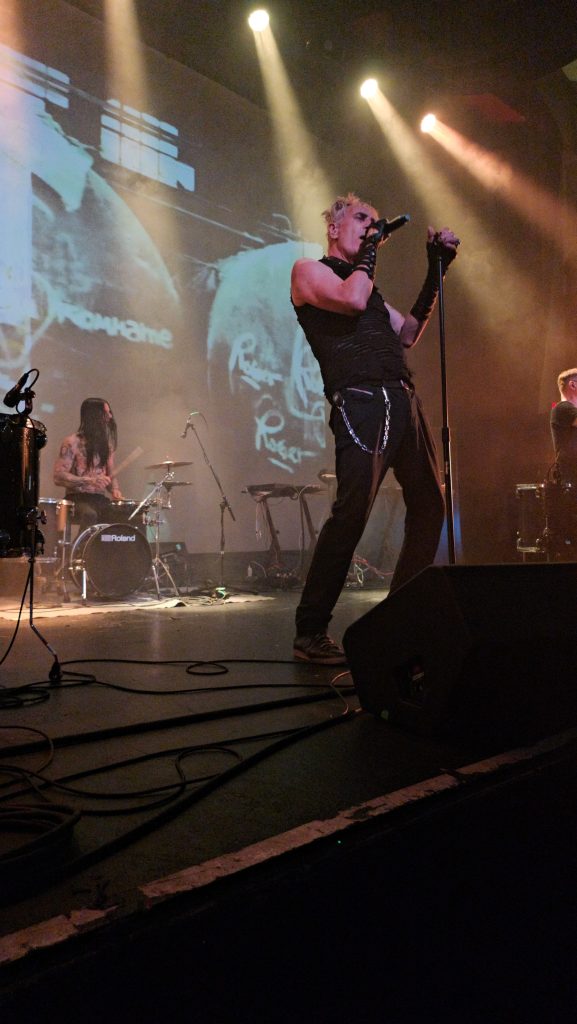
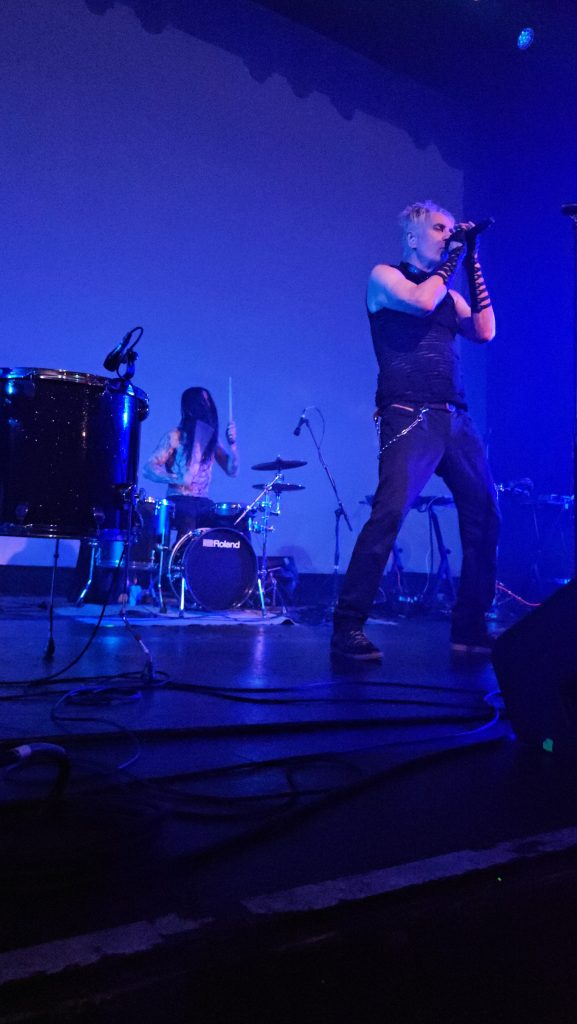
Bill Leeb is a solid frontman — no ego, just presence. He and Rhys took turns on drums, while Jon Siren stayed locked in behind the kit. They played crowd favorites like “Big Money,” “Isolate,” and “Mindphaser,” and the room was dialed in the whole time. Their set just hits — tight, heavy, and sharp. My barricade neighbor was celebrating her 55th FLA show, which honestly says everything you need to know.
Nitzer Ebb
They opened with “Control, I’m Here” and moved straight through a tightly packed set. Tracks like “Blood Money,” “Godhead,” and “Join in the Chant” hit one after the other, delivered with precision. Bon Harris handled everything with intensity but didn’t oversell it. Just focused and sharp.
Their sound was stripped back and forceful. Drum machines, looping synths, and vocals that were shouted, not sung. No layers or build-up—just repetition, rhythm, and pressure. It was mechanical in structure with lots of energy that filled the nearly sold-out venue till the end.
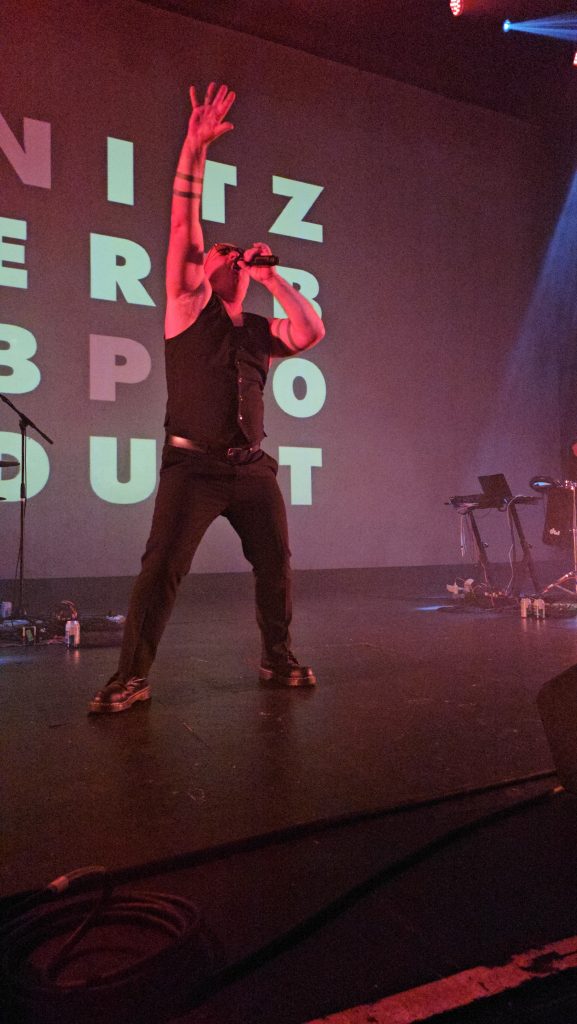
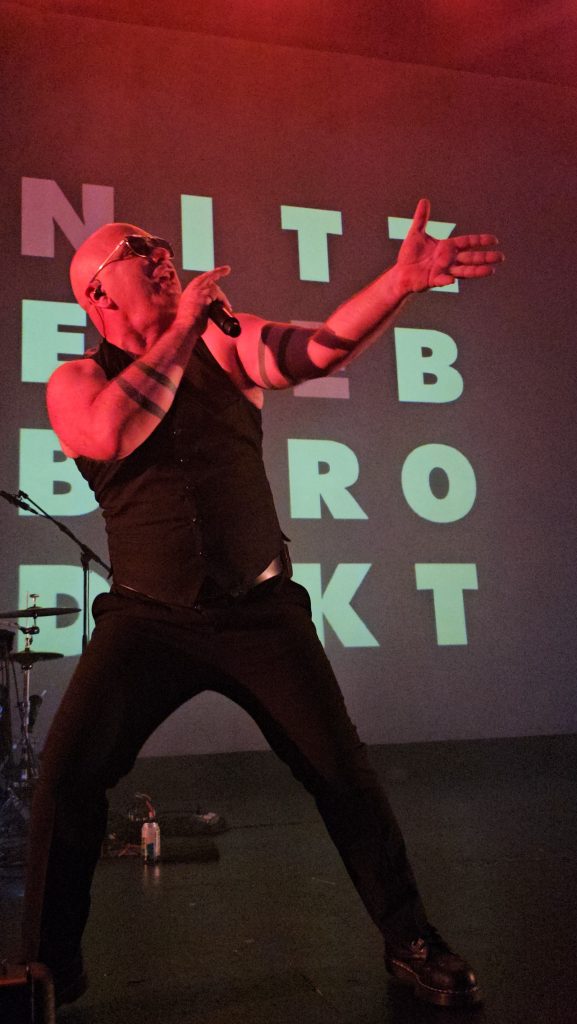
The encore shifted things slightly. A slideshow played in memory of Douglas McCarthy, who passed away in June. They closed with “How Time Flies” and “I Give You.” A quiet emotional counterpoint to the band’s otherwise physical and confrontational set. A nice tribute to the man who helped define the sound and attitude of EBM.
The Influence of EBM
The Industrial Nation Tour wasn’t just a nostalgia trip — it was proof that the Wax Trax! spirit still pulses through modern industrial music. Each band brought its own edge, but together they formed a bridge between the genre’s gritty past and its relentless present. For one night in Denver, the machines came alive again — louder, sharper, and still built to move bodies.
